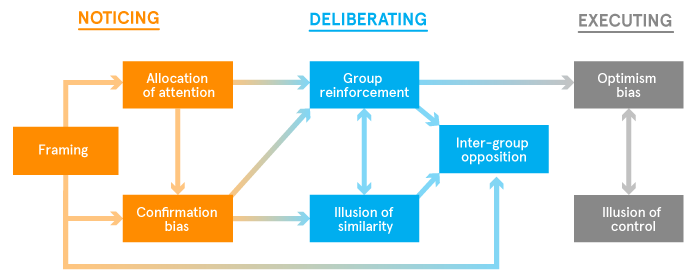Confident about your own decision-making? Take the test.
When we present our work or appear on panels, we’re often asked the same question: “But doesn’t government itself suffer from cognitive biases?”
It’s an issue close to our hearts, given our origins in government. We first highlighted it in the MINDSPACE report in 2010 (see p55) but, in the eight years since, the issue has received only a small amount of attention from academics, think tanks, and practitioners.
We hope to change that. For the last 18 months, we have been working with the Institute for Government to examine how cognitive biases affect government policy making – with a particular focus on how these biases make it more likely that policies do not get wide enough input or challenge.
We will present our findings in a series of blog posts over the coming months, with the full report due to launch in June. After that, we hope to work with governments to implement and test our recommendations.
Here is a preview of the framework we developed for the report. It describes how eight cognitive biases can affect three core activities of policy making: noticing, deliberating, and executing. The report brings these ideas to life with real-world examples.

Finally, at the top of this blog we posted a link to a short quiz to test whether BIT’s readers are also affected by cognitive bias. We will post the results of this survey in a later blog, so please do have a go!
This is the first blog in our Behavioural Government series, which explores how behavioural insights can be used to improve how government itself works.

